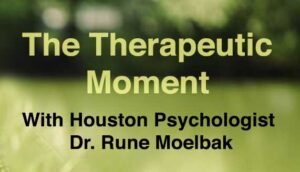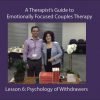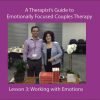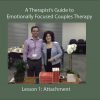You may have noticed that you aren't that happy in your relationship, or may find that you and your partner keep on getting stuck in the same old arguments. You want to fight for your relationship, but don't really know how to move out of the rut you are in. You have heard of couples therapy, but don't really know if it is right for you, and don't really know how to begin to choose a couples therapist to work with. Well, if this is you, then the following guidelines may be just what you are looking for...
But before we get started, the first thing I want to let you know is:
Seeing a Couples Therapist is Not a Sign You Have Failed
Many people find it difficult to get over the first hump to reaching out for help. One of the myths about couples therapy is that it is only for couples who cannot figure things out on their own. People often think there is something wrong with them for needing professional help to make their relationships work. However, difficulties with making relationships work is the norm, not the aberration. Roughly 50% of all married couples end up divorcing, and of the remaining 50% many live unhappy lives. Couples therapy is therefore what proactive couples do if they really want to work at their relationship. In fact if more couples had sought help to deal with the universal problems of creating lasting satisfying relationships, the divorce rate in the US would surely be lower, and the general relationship satisfaction much higher.
How to Choose a Couples Therapist:
Although there are many things to look for when considering what couples therapist might be the right match for you, here is a list of factors most couples would benefit from considering.
What's the right couples therapy approach for me?
There are many different types of couples therapy, so choosing a couples therapist does not mean you will get the same type of therapy. Couples therapists are not like dentists or chiropractors who use standard techniques. Instead, couples therapists adopt different philosophies about what is the main cause of difficulties in relationships, and what needs to happen in order to resolve the issues that tear couples apart. Some of the main approaches to couples therapy are: Gottman Method, Imago Therapy, and Emotionally Focused Couples Therapy (EFT).
I particularly like the Gottman Method and the EFT approach, because these approaches are founded on solid research. The Gottman Method is based on principles developed from studying the interactions of thousands of couples, and the principles of EFT have been scientifically proven to create lasting relationship change.
Below I will describe both of these approaches, but I would encourage you to look up others as well, to determine which ones might be a good fit for you.
Gottman Method:
This approach is based on the research of couples therapist, John Gottman, who has observed thousands of successful and unsuccessful couples, and distilled the behaviors that most successful couples engage in. A couples therapist with training in Gottman Method helps couples practice the skills successful couples master, and helps couples to change the habits that lead to relationship failure. This approach is right for you if you are a hands-on type of person who wants to learn techniques and gain knowledge about "what to do" and "how to do it". This approach works best if you are willing to change old habits.
Emotionally Focused Couples Therapy (EFT):
This approach does not focus on teaching you skills or helping you solve specific problems. Instead it helps you understand the relationship patterns in which you and your partner have gotten stuck. The belief here is that couples end up feeling angry or numb as ways of protecting themselves from underlying feelings of pain, loneliness, rejection, or inadequacy. In sessions, couples get help to reconnect with these more vulnerable feelings, and learn how to use them to connect with their partner instead of protecting against them by pushing their partner away. This approach is right for you if you want to get in touch with the feelings underlying your daily interactions, and want to experience a deeper connection with yourself and your partner, and not just learn practical skills.
What training does your couples therapist have?
There is no law prohibiting licensed mental health professionals from offering couples therapy to the public even if they do not have special training in couples therapy. This means that many therapists who see couples for couples therapy may rely on their general therapy training with individuals, as well as their intuition, as their only guide for their work. If you want to be sure you are working with a specialist in couples therapy, you therefore need to look to see if your therapist actually has done any training in couples therapy. Look on their websites or their "about me" descriptions, to learn more about their background and training. It really can make a difference to work with someone who truly understands the complexities that are unique to couples.
What values does your couples therapist have?
Even though most couples therapists adopt a value-neutral stance toward their clients, some have explicit values that are worth knowing about. Some couples therapists believe marriage should be saved at all cost, and others believe that the happiness of the individuals should first and foremost be preserved. Some couples therapists may adopt a religious stance toward their work and may for example offer couples therapy within an overarching Christian framework. If at all possible, see if you can familiarize yourself with your couples therapist's way of thinking. Read some blog posts or articles published by the therapist, or read more about the therapist's ideas about relationships on their websites.
A good resource to compare different therapists is the therapist directory of Psychology Today, which allows you to search for therapists in your area, and filter your choices by specific specialties and treatment approaches. Here you can also get a quick overview of available couples therapists and get easy links to their websites.
So there you have it - my own selective list of things to look for when choosing a couples therapist. If you have questions or comments don't hesitate to contact me, or start a discussion on the blog.
About Me: I am Rune Moelbak, Ph.D., psychologist and couples therapist in Houston Texas. I work with traditional and same-sex couples using EFT and Gottman Method approaches. Please visit my website for more information or to schedule appointment.

























